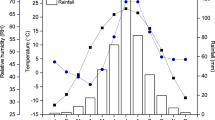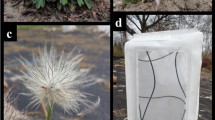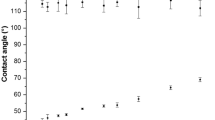Abstract
SEEDS of a variety of plants have been stored in unsealed air, sealed air, and carbon dioxide. All have been kept at laboratory temperature for five years. In all cases unsealed seed has deteriorated more rapidly than sealed seed. Furthermore, CO2-sealed seed has generally given better germination than seeds stored in sealed air. In two varieties of lettuce the original yield of mature plants from sealed seed has been maintained while the plants grown from unsealed seed have a diminished yield (Table 1). Lettuce and onion seeds have been selected for a cytological study because these showed marked differences in deterioration and were suitable material technically.
This is a preview of subscription content, access via your institution
Access options
Subscribe to this journal
Receive 51 print issues and online access
$199.00 per year
only $3.90 per issue
Buy this article
- Purchase on Springer Link
- Instant access to full article PDF
Prices may be subject to local taxes which are calculated during checkout
Similar content being viewed by others
References
Navashin, M., Nature, 131, 436 (1933).
Nichols, C., Amer. J. Bot., 29, 755 (1942).
Haferkamp, M. E., Smith, L., and Nilan, R. A., Agron. J., 434 (1953).
Author information
Authors and Affiliations
Rights and permissions
About this article
Cite this article
HARRISON, B., McLEISH, J. Abnormalities of Stored Seed. Nature 173, 593–594 (1954). https://doi.org/10.1038/173593a0
Issue Date:
DOI: https://doi.org/10.1038/173593a0
This article is cited by
-
Chromosome damage induced by artificial seed aging in barley
Theoretical and Applied Genetics (1984)
-
Effects of X-Rays on the Ageing of Seeds
Nature (1962)
Comments
By submitting a comment you agree to abide by our Terms and Community Guidelines. If you find something abusive or that does not comply with our terms or guidelines please flag it as inappropriate.



